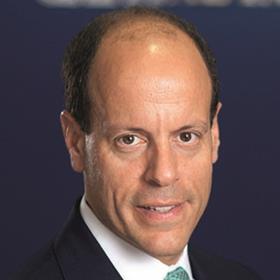The last three years have been unusual to say the least. We entered and re-entered national lockdowns, had three prime ministers without a single general election, witnessed Russia wage war on Ukraine and saw inflation hit a 40-year high as words like ‘permacrisis’ entered the everyday vernacular.

This has created a challenging environment for business and for real estate. According to MSCI, the volume of completed transactions fell 37% to €53bn (£46bn) in the third quarter of this year compared with a year earlier, with all the major real estate markets registering declines.
While we can still point towards some deals as evidence of activity– the sale of 21 Moorfields (pictured) by Landsec being a notable one – it is questionable to what extent they represent the market, and the sense that people are sitting on their hands unless they are forced to do otherwise is far more prevalent right now.
While the idea of hibernating until it is all over may be appealing, it simply isn’t an option for those of us who wish to find ourselves well positioned to enjoy the sunnier days ahead. Instead, we need to assess the weather, establish a base case and start navigating through the storm. So, here are my two cents on what clouds need to break if we are to find ourselves in a different position this time next year.
Let’s start with the obvious: the war in Ukraine. From a business perspective, the issue is the impact it has on Europe in terms of how it affects food and gas prices. We can all see the reality of rising food costs, but it is important to remember that this has been affected by other factors and there isn’t an on/off switch tied directly to the war. For example, the drought in France over the summer also had a significant impact on grain prices. As a humanitarian, you hope every day for an immediate resolution, but the most realistic scenario is that there will be some kind of conclusion and settlement in a year. In the meantime, there are other factors that can and will bring down food prices in the months ahead.
Next, and what is discussed with far less frequency, is China’s zero-Covid-19 policy. The most important thing to understand is China’s role as a trading partner with Germany. The longer it takes for China to open up, the more of a problem it is for Germany and, given Germany’s prominence in Europe’s economy, it will play a key role in terms of how Europe grows. My view is there is a realistic chance of serious upside and a V-shaped recovery here.
Finally, how central banks address inflation is crucial. By now, we can all agree the issue here is not so much the rate that is set but the quantum and scale of change. There is already a rhetoric of moderation emerging as they materialise from the Bank of England and the European Central Bank, and the reality is the challenges facing the economy will serve to drive down inflation.
So, what is going to happen? My base case is that we may be in for a difficult year, but it is a year we must work through if we are to not only overcome the challenges ahead, but also find the opportunities that will carry us forward. Sitting on your hands? Not an option.
Keith Breslauer is managing director of Patron Capital






























No comments yet